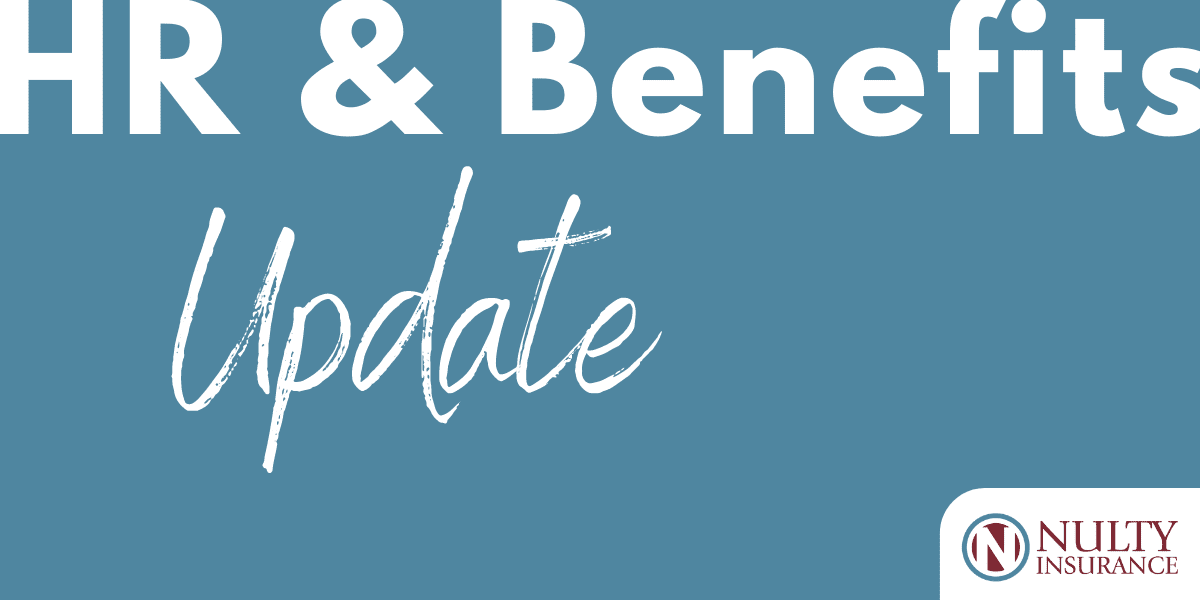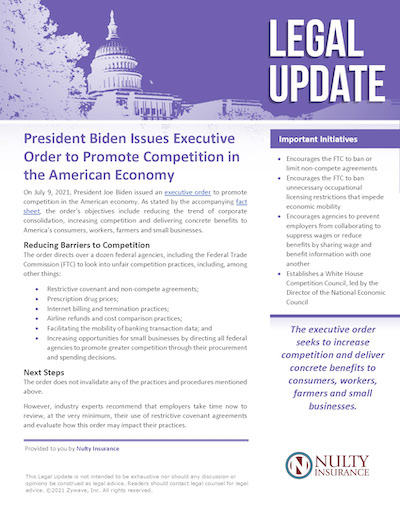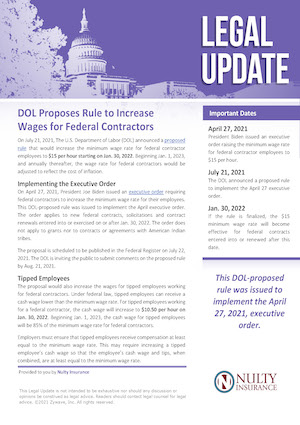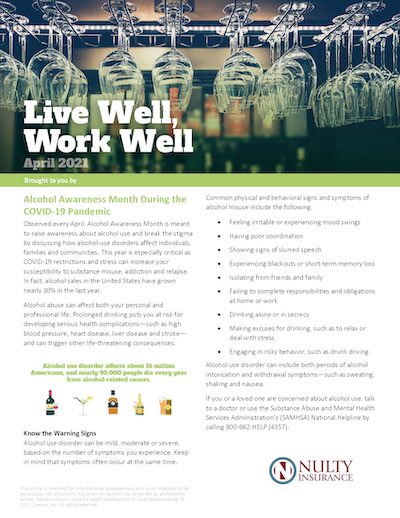
🗓️ August 2021 Updates
Keeping HR leaders up to date with important compliance updates and human resource articles.
Group Health Plan PCORI Fees Due on August 2, 2021
As a reminder, and just a few days away, the deadline for submitting Patient-Centered Outcomes Research Institute (PCORI) fees is rapidly approaching. While the fees are normally due on July 31, the deadline this year falls on a Saturday, so it has been extended until the following business day, August 2, 2021.
Employers that sponsor self-insured group health plans should report and pay PCORI fees using the most recently revised IRS Form 720, Quarterly Federal Excise Tax Return.
Insurance carriers are responsible for paying the PCORI fee on behalf of a fully-insured plan, but employers must pay the fee for any self-insured medical benefits, including general purpose health FSAs and HRAs. For plans that offer a mix of fully-insured and self-insured benefits, both the insurer and the employee must pay fees. The fee due depends on the date your most recent plan ended:
- For plan years that ended between January 1, 2020, and September 30, 2020, the fee is $2.54 per covered life
- For plan years that ended between October 1, 2020, and December 31, 2020, the fee is $2.66 per covered life.
The IRS allows plan sponsors one of three alternative methods to determine the average number of covered lives for the year:
- Actual count method
- Snapshot method
- Form 5500 method
In determining the number of covered lives, you should count anyone covered under your self-insured medical programs, including former employees, and their dependents, who participate under COBRA or other post-employment coverage. You can treat all self-insured benefits as a single plan.
IRS Issues Draft Form 1095-C
The Internal Revenue Service (IRS) recently issued the 2021 Draft Form 1095-C, which is required to be filed with the IRS by applicable large employers (ALEs), to report the offer of health coverage to employees. An ALE that offers an individual coverage health reimbursement arrangement (ICHRA) can now use two previously reserved codes in order to report offers of coverage. Additionally, the 2021 instructions also clarify that self-funded plans that are required to complete Part III of Form 1095-C, and that have more than 13 covered individuals on a single Form 1095-C, may use additional copies of page 3 for reporting purposes.
The IRS has invited comments on the draft Form 1095-C and instructions, which may be submitted at IRS.gov/FormsComment. Early release drafts are available at IRS.gov/DraftForms and remain there after the final release is posted at IRS.gov/LatestForms.
What Does President Biden’s Order on Noncompete Mean for Employers?
Employers should review their non-compete agreements and other restrictive covenants in light of a new executive order that aims to curb the use of these contracts in the workplace. The federal government has yet to issue any new rules, but employers should prepare for potential changes.
President Biden recently signed an executive order that encourages the Federal Trade Commission (FTC) to ban or limit noncompete agreements. The order is meant to promote competition and economic growth by making it easier for workers to change jobs, among other objectives. Employers generally use noncompetes to protect their proprietary information by preventing employees from working for competitors in a specific geography for a limited amount of time. These agreements, particularly with low-wage earners in the retail and restaurant industries, have been scrutinized in recent years.
As employers await direction from the federal government, they should note the enforceability of non-compete agreements is generally evaluated under state laws, and those laws can vary significantly. In the state of Michigan, courts will enforce noncompetes that are “reasonable.” Just what is reasonable is a matter of balancing the employer’s business interest against the right of the employee to work and earn a living in his or her trade. Under Michigan law, if a non-compete is challenged in court and parts of it are found to be reasonable while other parts found to be unreasonable, the court has the discretion to limit the unreasonable portions of the agreement in order to make it enforceable. There are generally four factors considered in determining the reasonableness of a non-compete agreement in Michigan – the line of business or type of employment, the geographic area, the duration, and the competitive business interest the employer is seeking to protect.
DOL Proposes Rule to Increase Wages for Federal Contractors
On July 21, 2021, the DOL announced a Proposed Rule that would increase the minimum wage rate for federal contractor employees to $15 per hour starting on January 30, 2022. Beginning January 1, 2023, and annually thereafter, the wage rate for federal contractors would be adjusted to reflect the cost of inflation. The proposal was scheduled to be published in the Federal Register on July 22, 2021. The DOL is inviting the public to submit comments on the proposed rule by Aug 21, 2021.
Health Plan and Provider Price Transparency Obligations Can’t Be Ignored
The Centers for Medicare and Medicaid Services (CMS) has proposed penalties for hospitals that don’t comply with a price transparency rule that took effect this year. Meanwhile, sponsors for group health plans should prepare for their own transparency requirements, which start to take effect in 2022:
- Hospital Transparency Requirements: On January 1 of this year, the Hospital Price Transparency final rule became effective, requiring hospitals in the U.S. to establish, update, and make public a yearly list of their standard charges for items and services they provide.
- Group Health Plan Disclosures: Beginning in January 2022, employers with self-insured group health plans or insurance carriers (for fully insured group plans) must provide plan enrollees with estimates of their out-of-pocket expenses from different health care providers, so enrollees can shop and compare costs for services before receiving care. The requirement is part of the Transparency in Coverage rule that was finalized last November by the DOL, Treasury and HHS. Third parties can implement many of the pricing transparency measures and plan fiduciaries must ultimately ensure compliance. As compliance deadlines for new pricing transparency requirements for group health plans draw near, plan sponsors will need to use the second half of 2021 to prepare.
In addition, the Consolidated Appropriations Act, 2021 signed into law last December, contained the No Surprises Act, which bans out-of-network billing for emergency services and out-of-network charges for ancillary care at an in-network facility. The No Surprises Act also contained steps to increase transparency in employee health benefit plans in key areas, which will be subject to future regulations, such as:
- Removal of gag clauses on price and quality information – Plans may not agree to restrictions in provider network contracts that would prevent them from accessing cost and quality of care information and providing that information to participants
- Disclosure of compensation to brokers and consultants – Plans must disclose payments of $1,000 or more that they make to any health benefits broker or consultant
- The Centers for Medicare and Medicaid Services (CMS) has proposed penalties for hospitals that don’t comply with a price transparency rule that took effect this year. Meanwhile, sponsors for group health plans should prepare for their own transparency requirements, which start to take effect in 2022
The legislation included a myriad of transparency and disclosure requirements that take effect in 2021 and 2022. Plan sponsors will need to work closely with service providers and issuers to ensure that group health plans are well-positioned to comply.




